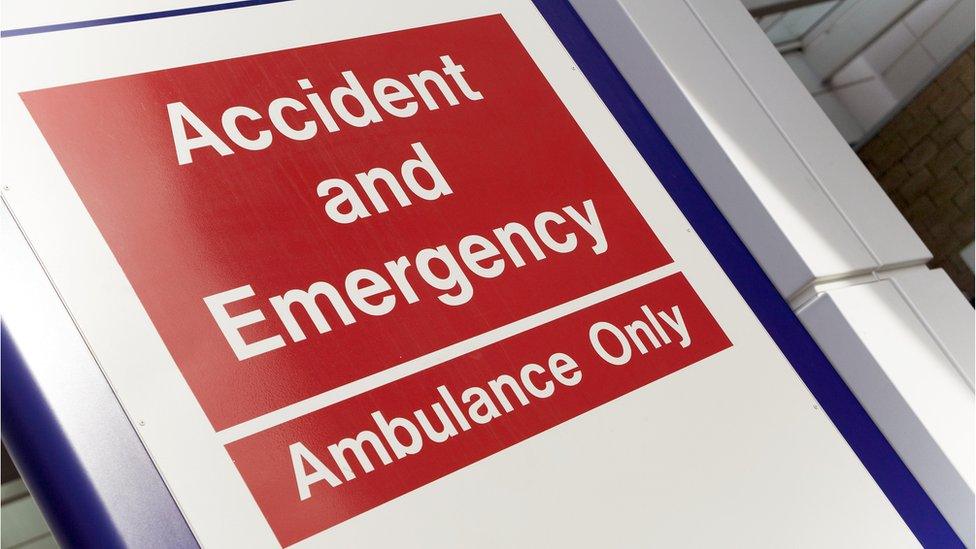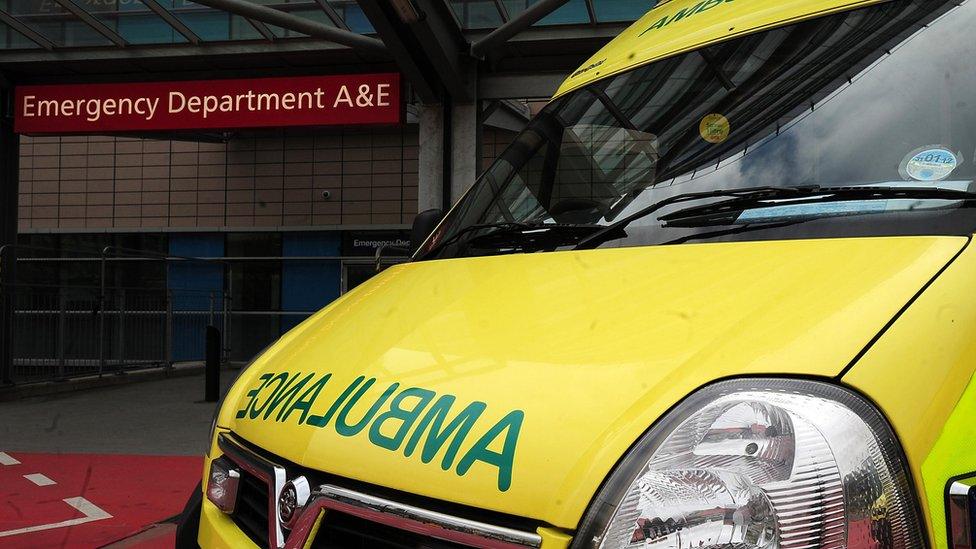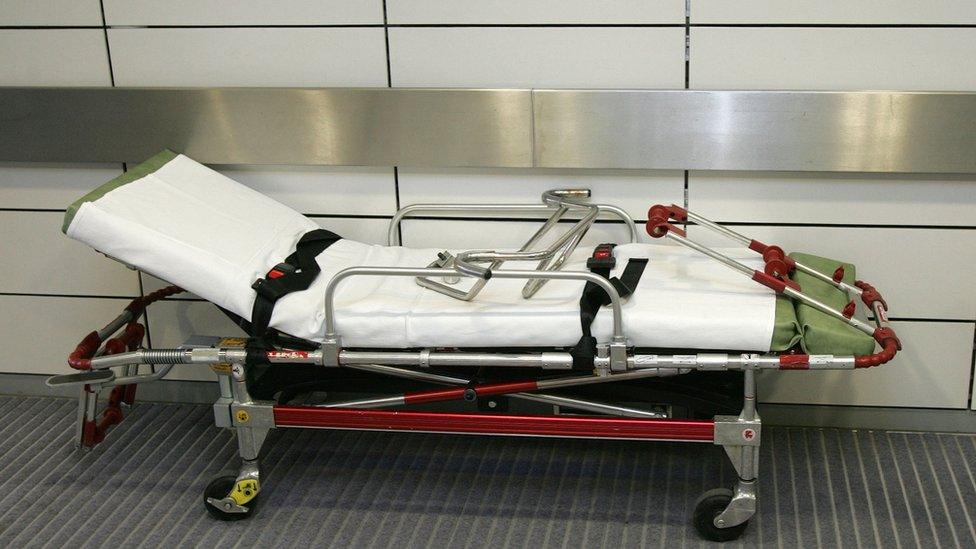A&E waiting time over 12 hours for more than 100,000 in England
- Published

More than 100,000 patients spent at least 12 hours in A&E departments in England last year, data seen by the BBC's 5 live Investigates shows.
The figures from the Health and Social Care Information Centre (HSCIC) also show the number of people waiting that long has been rising.
There were 124,000 such events (1% of attendances) in the first 10 months of 2015 against 68,000 in all of 2013.
NHS England said the proportion of extended waits was extremely small.
However, it added that even one 12-hour wait by a patient was too many.
The NHS target is for 95% of patients to be discharged, transferred or admitted into hospital for treatment within four hours. All nations currently report performance against this target publically but England is the only nation which does not report 12-hour waits from arrival in A&E.
Dr Adrian Boyle, chair of the Quality Emergency Care Committee at the Royal College of Emergency Medicine (RCEM), said: "It's not just about tedious waits for patients.
"Studies have repeatedly shown that there is an increased mortality in people who spend a long time in emergency departments, so crowding kills patients."
The data includes all patients still in A&E after 12 hours but does not say why they were there so long.
Dr Boyle said: "These are almost always people who need admission to hospital, so these are the most vulnerable and the most seriously ill patients."

NHS England should report 12-hour breaches from the moment a patient arrives in A&E, the RCEM says
The nations measure long waits in different ways. Scotland, Wales and Northern Ireland start the clock from when the patient arrives, whereas the NHS in England does not.
England's published data on 12-hour waits counts the time spent in A&E from the point at which a doctor decides a patient should be admitted - so this figure does not include time spent in casualty prior to a decision being taken, or those patients who are discharged or treated in the casualty department.
Dr Boyle said: "The effect of that is there is a big discrepancy in the figures for how long someone actually spends in an emergency department and breaches of the 12-hour standard.
"NHS England needs to report 12-hour breaches from the moment a patient arrives in A&E."
As a result, trusts in England reported 1,282 breaches of the 12-hour decision to admit standard to the end of November 2015 - compared with the 124,000 occasions provisional HSCIC data shows up to the end of October for the same year.
NHS England said: "The focus in England is the four-hour standard to admit, transfer or discharge, and this applies to all attendances at A&E."
Although there are some differences in definitions, the new figures on 12-hour waits for England mean data is now available for all four UK nations for the first time.
NHS England said: "In terms of comparing NHS England with the NHS in other areas of the UK, we have different standards and different monitoring of such standards. Any comparison, therefore, needs to be approached with caution."

Wales differs from the rest of the UK in how ambulance arrival times are recorded.
Analysis of the new data for England, alongside published data from Wales, Scotland and Northern Ireland suggests that the situation is worst in Wales.
The proportion of Welsh patients spending 12 hours or more in A&E has increased sharply in the last three years, and reached 3.1% up to the end of October 2015 - up from 1.8% in 2013.
The Welsh population is older and generally suffers from higher levels of deprivation than the population of England. There are also differences in how ambulance arrival times are recorded in Wales.
A Welsh government spokesperson said: "The four NHS systems in the UK record A&E data in different ways, including the time the 'clock' starts and stops which is very different in each nation.
"The most up-to-date data for Wales shows the number of people spending more than 12 hours in A&E departments in Wales has fallen - with a 23% drop in December 2015 compared to November 2015.
"The Welsh government will continue to work with the NHS in Wales to reduce the number of people who spend more than 12 hours in A&E departments. However, it should be noted that many people will be receiving active treatment during this time."
In 2015 Northern Ireland reported almost 3,200 12-hour breaches, up to the end of October, representing 0.6% of all major A&E department patients.
Scotland had the fewest with nearly 1,700 12-hour breaches from arrival over the same time period, representing 0.15% of all attendances to major A&E units.
Hear the full report on 5 live Investigates on BBC 5 live on Sunday 7 February 2016 at 11:00 GMT. Or download the programme podcast.
Related topics
- Published27 November 2015

- Published14 January 2016
